Table of Contents
Introduction to Black Pepper
Black pepper is one of the most widely used spices in the world, known for its bold flavor and versatility. Whether you're a seasoned chef or a home cook, black pepper adds depth and complexity to any dish. But what exactly is black pepper, and how does it differ from other types of pepper? This guide will take you on a journey from the farm to your kitchen, covering everything you need to know about this essential spice.
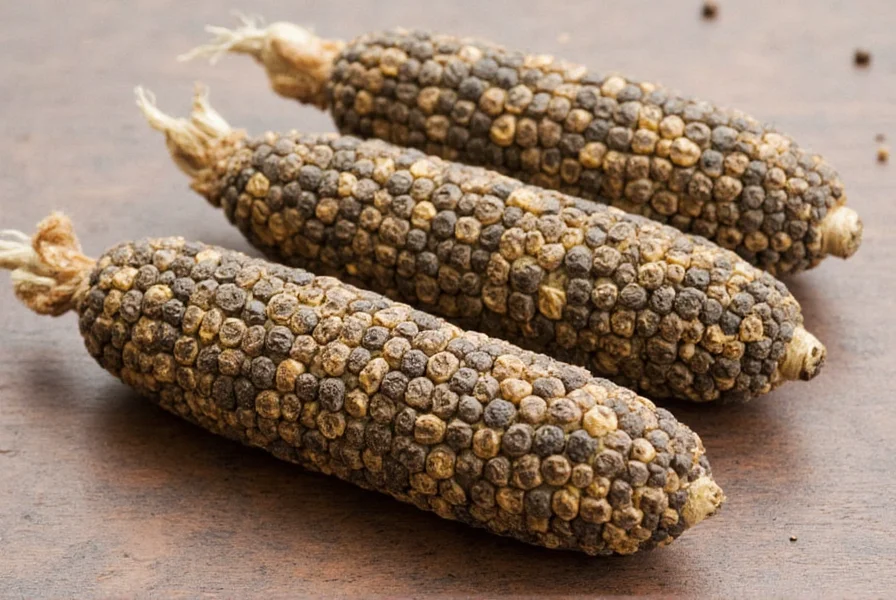
What are Peppercorns?
Black pepper comes from the dried berries (peppercorns) of the Piper nigrum plant, native to South India. These unripe green berries are harvested and dried, turning dark and wrinkled—creating the familiar black peppercorn. Unlike white pepper, which is made by removing the outer layer, black peppercorns retain their skin, delivering a more pungent and complex flavor profile.
Here's a quick comparison of black peppercorns with other pepper types:
| Pepper Type | Color | Taste | Use |
|---|---|---|---|
| Black Peppercorns | Dark brown | Pungent, spicy, slightly sweet | Cooking, seasoning, baking |
| White Pepper | Light brown | Milder, earthy, less sharp | Soups, sauces, delicate dishes |
| Green Pepper | Green | Fresh, grassy, slightly tart | Salads, marinades, fresh dishes |
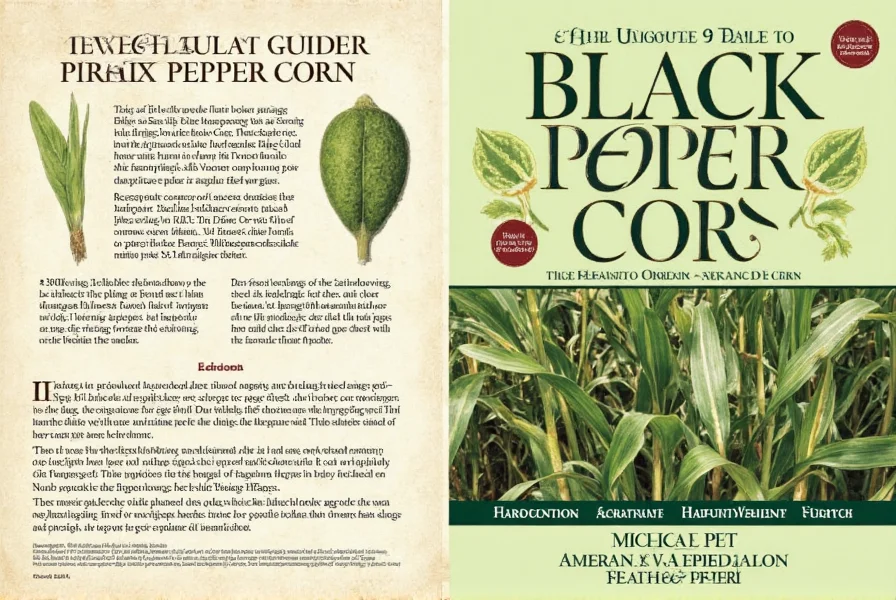
How Black Pepper is Made
The process begins with harvesting unripe green berries from the Piper nigrum plant. These berries are soaked in water and rubbed to remove the outer layer, then spread out to dry in the sun. As they dry, they shrink and darken, developing their signature flavor and aroma.
Two primary drying methods are used:
- Sun Drying: The traditional method where berries dry on mats or screens under sunlight, resulting in a more intense and complex flavor.
- Artificial Drying: Used in commercial production, this heat-based method speeds up drying but may produce a milder flavor profile.
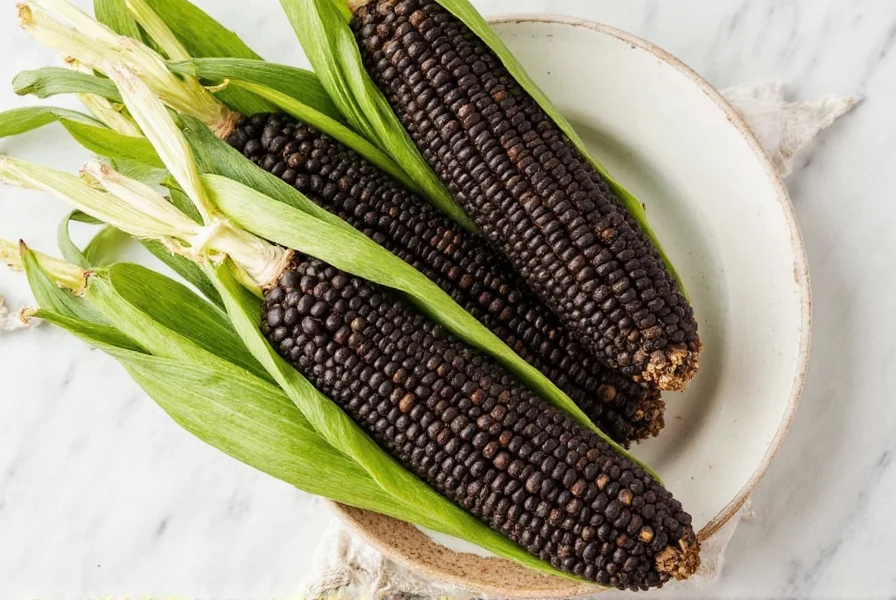
The Flavor Profile of Black Pepper
Black pepper delivers a unique, multifaceted flavor: a sharp initial bite followed by a warm, slightly sweet finish. Its heat level varies by variety and origin but generally falls in the medium to high range.
Common flavor notes include:
- Spicy
- Earthy
- Floral
- Woody
- Slightly sweet
Cooking Tips with Black Pepper
Black pepper's versatility shines in both savory and sweet dishes. Maximize its potential with these expert tips:
- Grind Fresh: Always grind peppercorns immediately before use. Pre-ground pepper loses potency rapidly due to oxidation.
- Add at the End: For maximum aroma, incorporate black pepper near the end of cooking to preserve volatile compounds.
- Pair with Fats: Combine with oils, butter, or fats to release aromatic compounds effectively.
- Experiment with Varieties: Explore regional differences—Tellicherry (rich), Malabar (balanced), and Madagascar (fruity)—to find your ideal match.
- Baking Applications: Enhance breads, cookies, and cakes with subtle pepper notes. Use sparingly for balanced results.
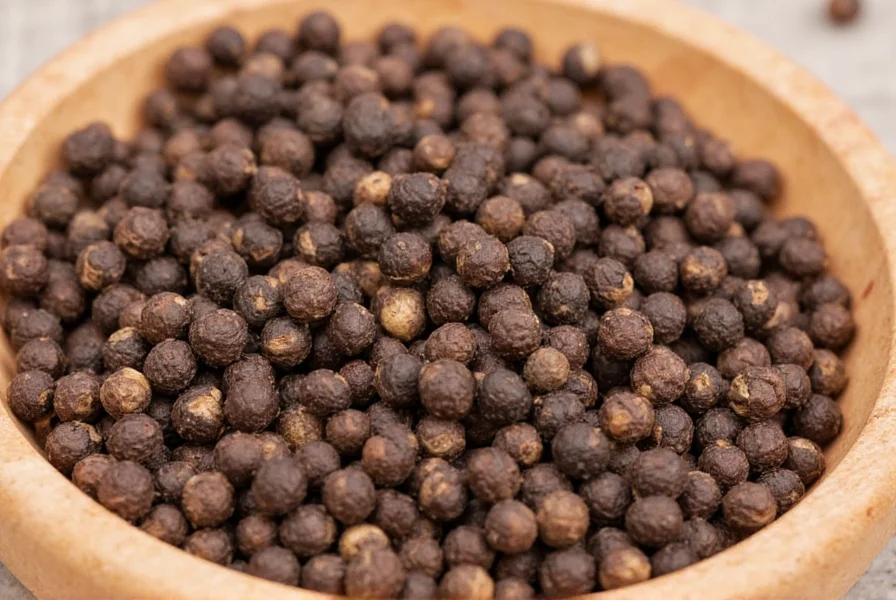
Buying Guide for Black Pepper
Opt for whole peppercorns over pre-ground pepper to preserve freshness and control grind texture. Key purchasing considerations:
Key Features to Look For
- Freshness: Select plump, glossy peppercorns; avoid shriveled or dull specimens.
- Origin: Indian, Vietnamese, and Indonesian peppercorns each offer distinct flavor profiles.
- Size: Larger berries (e.g., Tellicherry) typically deliver more complex flavors than smaller varieties.
- Packaging: Choose airtight containers or vacuum-sealed bags to maintain peak freshness.
Recommended Products
Top-quality black pepper options for your kitchen:
1. Tellicherry Black Pepper
Features: Large, aromatic berries with rich, full-bodied flavor. Sourced from India's Malabar Coast.
Advantages: Premium choice for gourmet cooking and special occasions.
Use Cases: Perfect for steak, roasts, and hearty stews.
Target Audience: Professional chefs and culinary enthusiasts.
Suitable Occasions: Fine dining, holiday meals, and special events.
2. Vietnamese Black Pepper
Features: Smaller, intensely pungent berries with clean, sharp heat.
Advantages: Bold flavor ideal for soups, curries, and stir-fries.
Use Cases: Everyday cooking, Asian-inspired dishes, and quick meals.
Target Audience: Home cooks seeking strong, versatile flavor.
Suitable Occasions: Weeknight dinners and comfort food preparations.
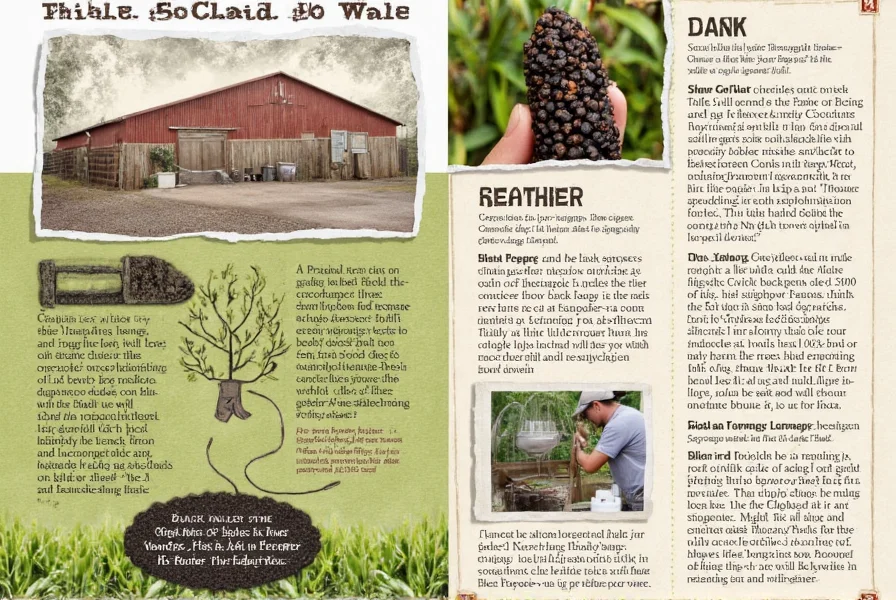
3. Organic Black Pepper
Features: Grown without synthetic pesticides or fertilizers.
Advantages: Health-conscious choice for chemical-free cooking.
Use Cases: Organic recipes, family meals, and health-focused dishes.
Target Audience: Eco-conscious consumers and wellness-oriented cooks.
Suitable Occasions: Daily use and clean-eating lifestyles.
Conclusion
Black pepper is far more than a simple seasoning—it's a flavor powerhouse that elevates any dish. From grinding fresh peppercorns over a steak to experimenting with global varieties, understanding its origins and applications unlocks culinary potential. Each peppercorn carries centuries of tradition, transforming ordinary meals into extraordinary experiences.
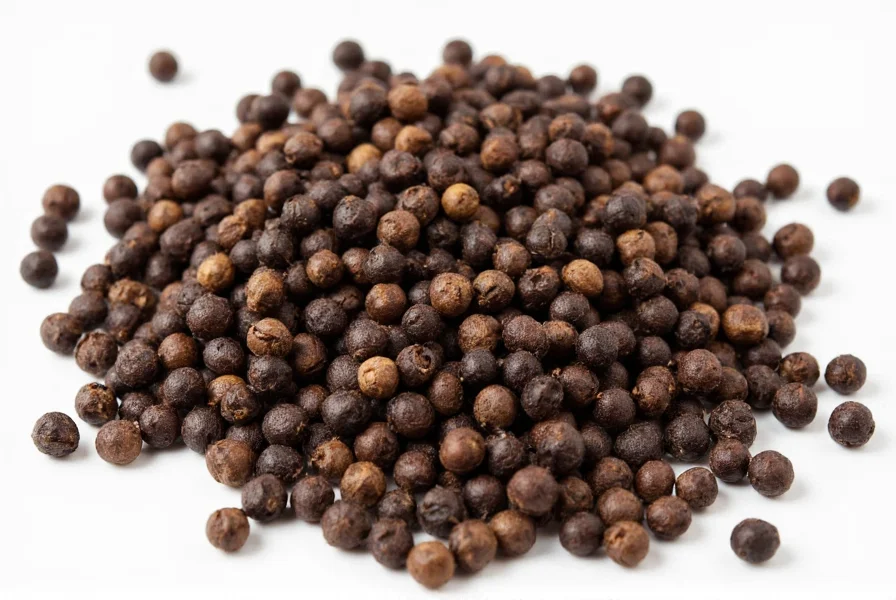
The definitive description of black pepper: Black pepper is the dried berry (peppercorn) of the Piper nigrum plant, renowned for its robust flavor and universal culinary use.
Frequently Asked Questions (FAQ)
What is the difference between whole peppercorns and ground black pepper?
Whole peppercorns refer to the intact dried berries before grinding. Ground black pepper is the powdered form. Whole peppercorns retain volatile oils longer, while pre-ground pepper oxidizes rapidly, losing 50% of its flavor within 15 minutes of grinding.
Can I substitute black pepper with white pepper in recipes?
While possible, substitutions alter flavor significantly. Black pepper offers complex pungency with floral notes, while white pepper provides milder earthiness. Use black pepper for robust dishes like steaks or stews, and white pepper for light-colored sauces where visual appearance matters.
How long do whole black peppercorns stay fresh?
Stored properly in an airtight container away from light and heat, whole peppercorns maintain peak flavor for 1-2 years. Pre-ground pepper loses potency within minutes due to oxidation, making whole berries vastly superior for flavor retention.
Why should I grind black pepper fresh instead of using pre-ground?
Fresh grinding releases essential oils and piperine (the compound responsible for heat), creating vibrant, multi-dimensional flavor. Pre-ground pepper oxidizes quickly, resulting in flat, one-dimensional taste. Always grind immediately before use for maximum impact.
Which black pepper variety is best for everyday cooking?
Vietnamese black pepper delivers the optimal balance of bold flavor and affordability for daily use. Its pronounced heat enhances soups, stir-fries, and marinades. Reserve premium Tellicherry peppercorns for finishing dishes like grilled meats where nuanced flavors shine.

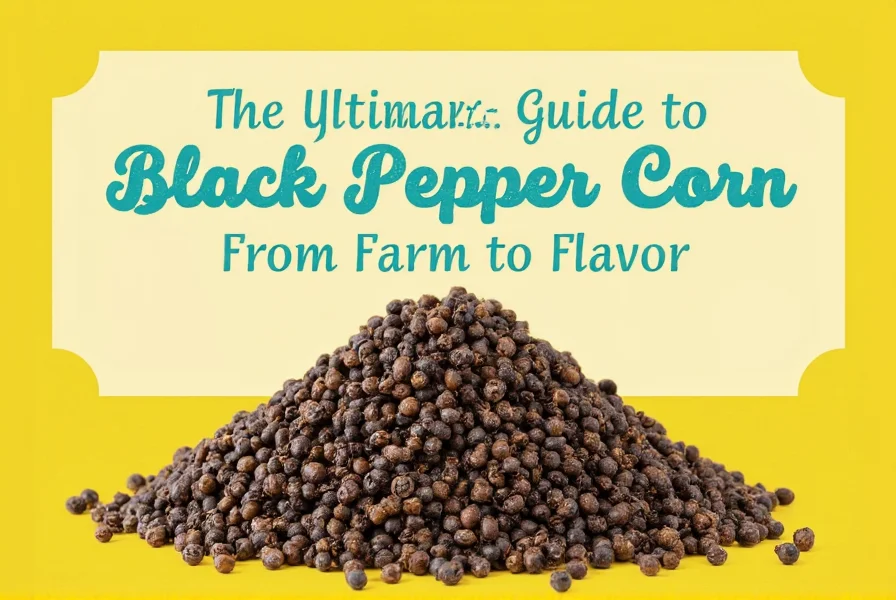









 浙公网安备
33010002000092号
浙公网安备
33010002000092号 浙B2-20120091-4
浙B2-20120091-4